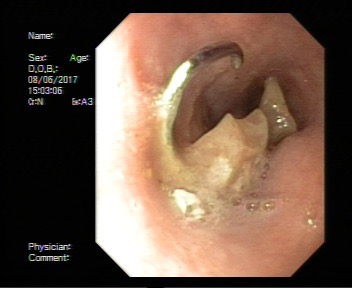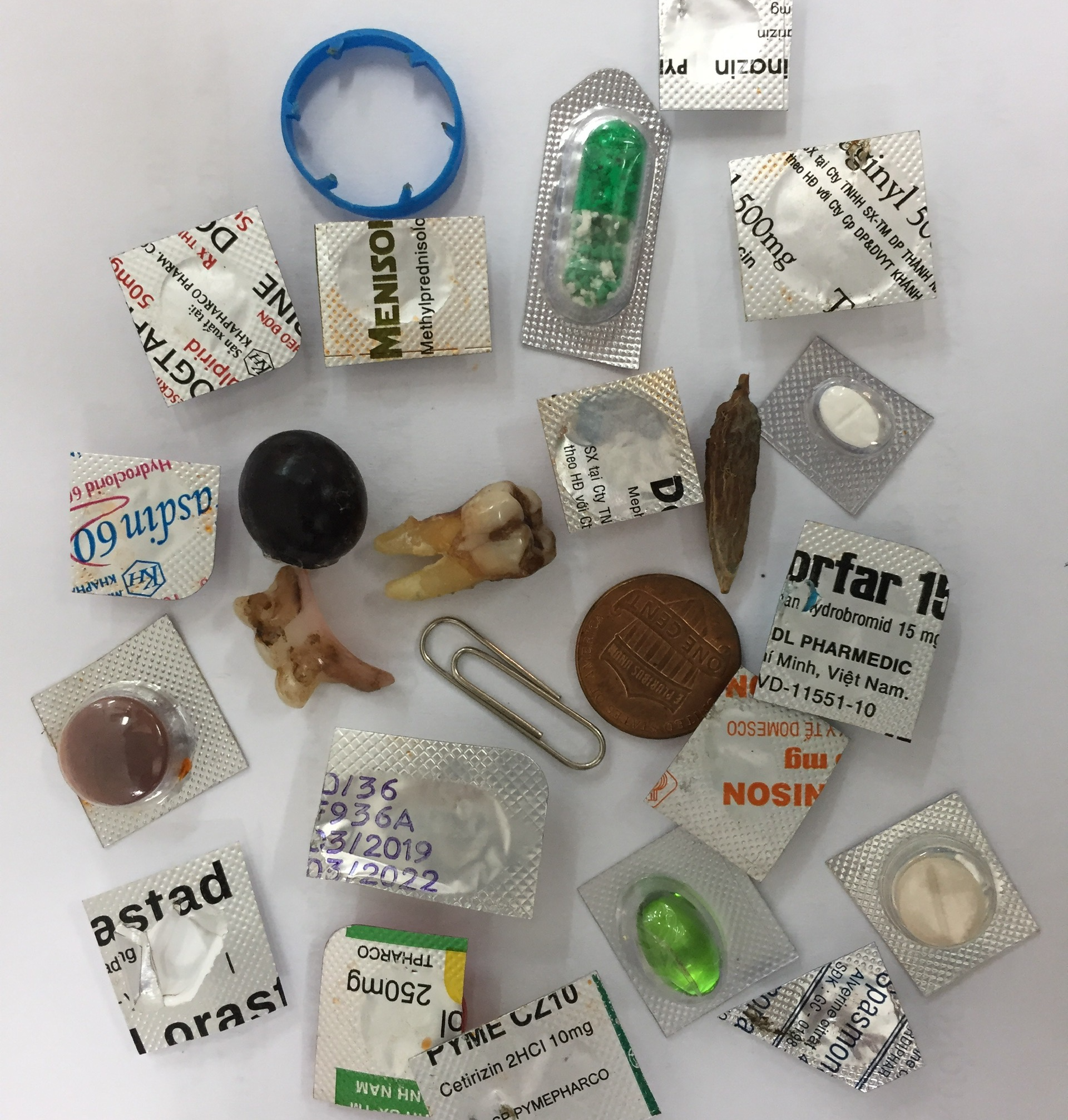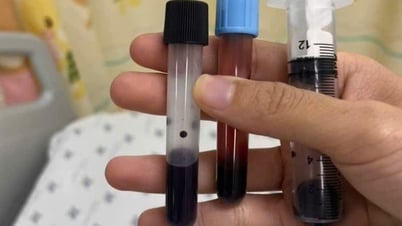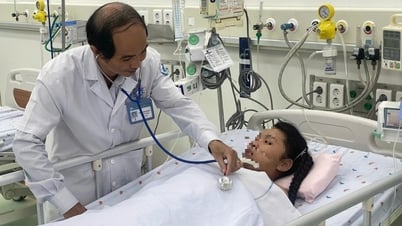Doctor Pham Cong Nhan, Deputy Head of the Department of Examination on Demand, Thong Nhat Hospital (HCMC), said that recently, the hospital has received a number of cases of substance abuse with a tendency to swallow foreign objects.

Image of foreign object in patient's stomach during endoscopy. (Photo: Provided by doctor)
Accordingly, in the first case, a young man (31 years old, living in Ho Chi Minh City) used addictive substances without his family's knowledge. To create a new feeling, each time he used them, he deliberately swallowed foreign objects such as stones, orange peels, tangerines, rambutans, etc. However, when he had a stomachache, his family took him to the hospital for examination.
At the hospital, doctors examined and clinically diagnosed the patient's stomach and discovered many foreign objects. "When we performed an endoscopy to remove the foreign objects, the stomach looked like a "messy pile of trash" because there were fruit peels, glass, stones..." - Doctor Nhan was shocked.

Foreign objects after being removed from some patients who swallowed foreign objects at Thong Nhat Hospital (HCMC). (Photo: Provided by the doctor)
The second case is a 27-year-old patient living in Ho Chi Minh City. This person swallowed parts of a nail clipper. Taking the patient's medical history, the family said that the patient swallowed the foreign object to create pressure because he did not want to go to drug rehabilitation.
According to Dr. Nhan, cases of substance abuse have a tendency to swallow foreign objects, which is difficult to warn or prevent. If not removed promptly, foreign objects can cause stomach perforation, bleeding, and even endanger life.
Dr. Nhan added that patients coming to the emergency room because of swallowing foreign objects is very common, most commonly swallowing medicine shells, toothpicks, fish bones, etc. About 80-90% of foreign objects escape on their own without treatment, the remaining 20% require intervention. In cases where foreign objects do not escape on their own, they can cause complications such as stomach ulcers, gastrointestinal bleeding, gastrointestinal obstruction, etc. If not detected and treated promptly, they can cause serious complications and death.
Source




































































































Comment (0)